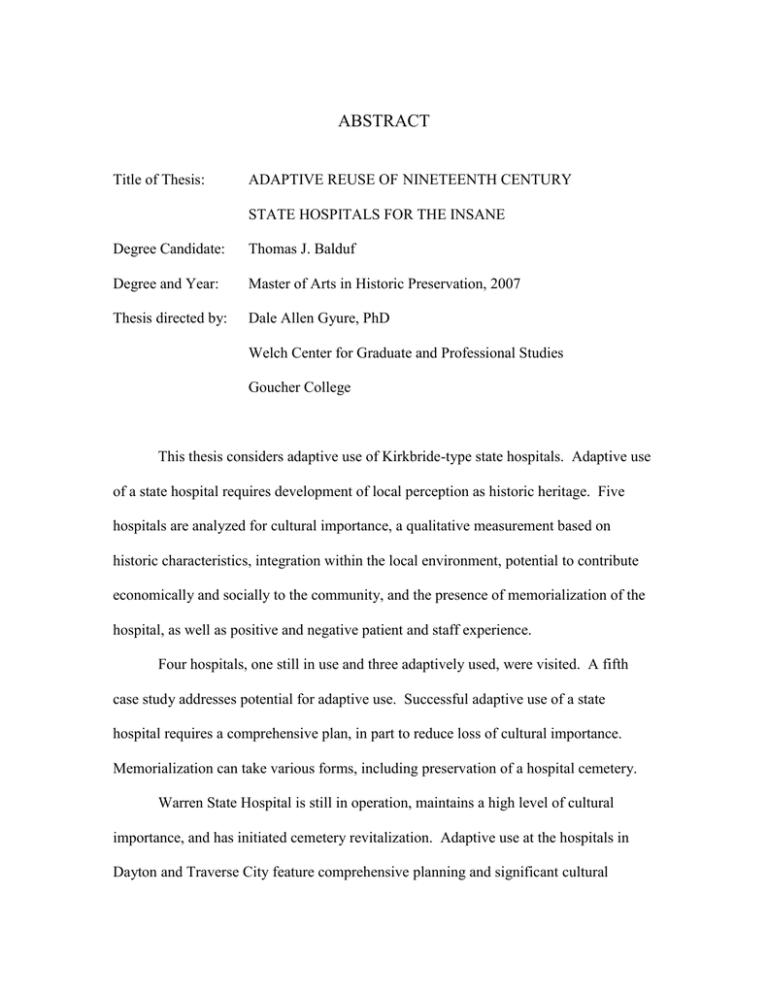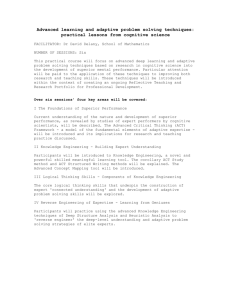Balduf, Thomas. Adaptive Reuse of Nineteenth Century State Hospitals for the Insane
advertisement

ABSTRACT Title of Thesis: ADAPTIVE REUSE OF NINETEENTH CENTURY STATE HOSPITALS FOR THE INSANE Degree Candidate: Thomas J. Balduf Degree and Year: Master of Arts in Historic Preservation, 2007 Thesis directed by: Dale Allen Gyure, PhD Welch Center for Graduate and Professional Studies Goucher College This thesis considers adaptive use of Kirkbride-type state hospitals. Adaptive use of a state hospital requires development of local perception as historic heritage. Five hospitals are analyzed for cultural importance, a qualitative measurement based on historic characteristics, integration within the local environment, potential to contribute economically and socially to the community, and the presence of memorialization of the hospital, as well as positive and negative patient and staff experience. Four hospitals, one still in use and three adaptively used, were visited. A fifth case study addresses potential for adaptive use. Successful adaptive use of a state hospital requires a comprehensive plan, in part to reduce loss of cultural importance. Memorialization can take various forms, including preservation of a hospital cemetery. Warren State Hospital is still in operation, maintains a high level of cultural importance, and has initiated cemetery revitalization. Adaptive use at the hospitals in Dayton and Traverse City feature comprehensive planning and significant cultural importance. An art museum at the Athens State Hospital is a relatively successful adaptive use, but the lack of a long-range plan for the hospital wings is problematic. The Hudson River State Hospital comprehensive adaptive use plan requires zoning modification and in-fill may obscure the hospital design. Danvers State Hospital is considered an example of loss of cultural importance through destruction of historically important characteristics. Adequate funding of adaptive use is vital, and access to historic preservation tax credits and government funding should be considered in comprehensive planning.





